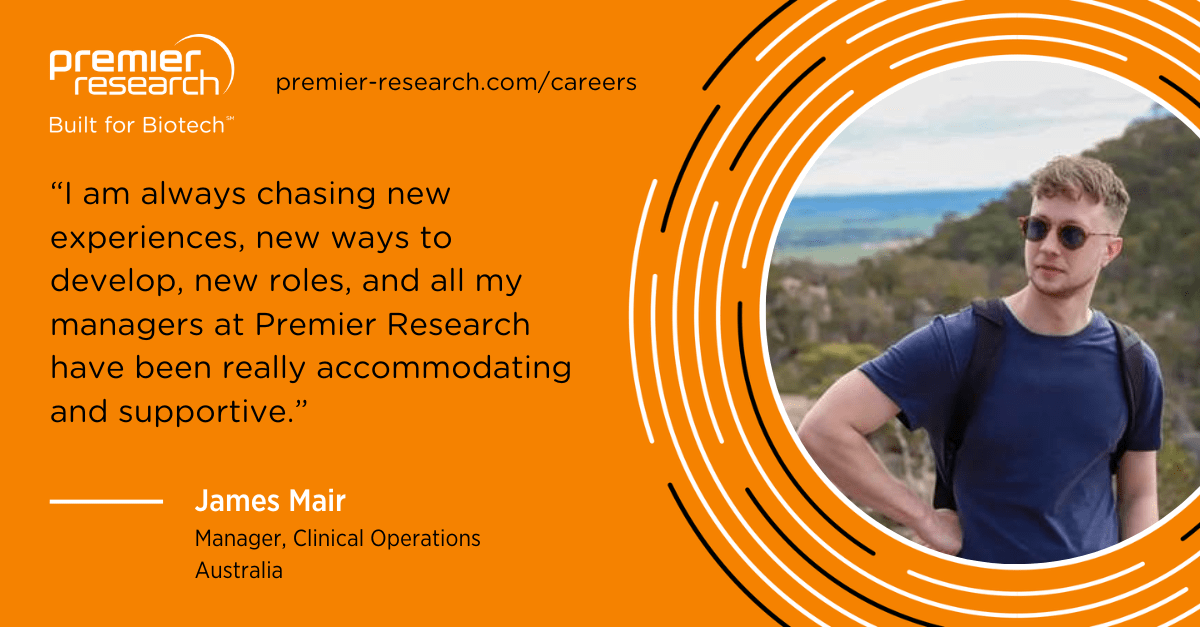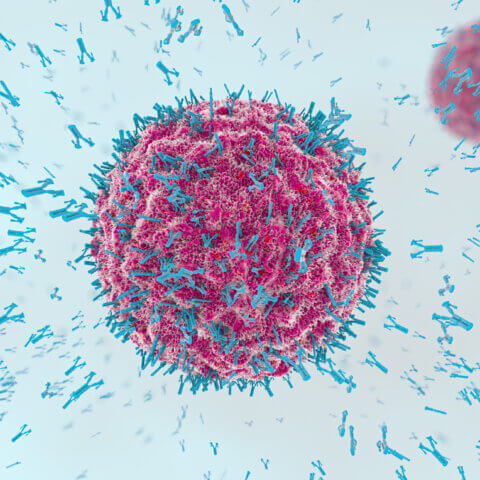Last Updated: January 12, 2024, 9 am UTC

Premier Cultural Anchor: We Aim High
“I am always chasing new experiences, new ways to develop, new roles, and all my managers at Premier Research have been really accommodating and supportive.”
I started my career doing lab work, a common choice for a lot of biologists. I was working on cutting-edge stuff, but once I got the technique down, I was really bored. I didn’t know anything about clinical research, but a good friend of mine recommended it as a potential career path and helped me find a job.
I was over the moon when Premier Research offered me my first clinical research associate (CRA) position. I was fortunate to have a great mentor, so it wasn’t long before a client agreed to have me on their study, and I was off and running. I loved the work; I loved the travel around the United Kingdom and Ireland, and I loved the culture at Premier. So, when I found I could stay with Premier, even though I was planning a move to Australia, I was thrilled.
A few flights and one holiday later, I was in Melbourne and still a Premier CRA. Unfortunately, the study I was originally allocated to was canceled by the sponsor, so I found myself less busy than usual. I really like a challenge, so I began taking on some study start-up responsibilities. One of my colleagues drafted a checklist that was incredibly helpful, covering everything from pre-award feasibility to close out. Study start-up requires an incredible amount of knowledge; it seemed that for every one thing I did, I had to ask three questions — but my colleagues were always ready to answer them.
Concurrently, I was the monitor on one of the studies from beginning to end. Every CRA should do both parts at some point; it helps you understand the general process, appreciate the timelines, and know what to expect in the investigator site file. Doing the two in tandem was absolutely critical to my development.
While I loved being a CRA, I wanted to do more and was ready for a new challenge. I have always excelled at understanding people and problem-solving, and I now had experience in data management, study start-up, and monitoring. A Clinical Lead position came available — which doesn’t often happen in Australia — and I felt my skills and background complemented the role. I applied, but even though I felt ready, I really didn’t have enough experience, and I did not get the position.
I was disappointed, but I didn’t let that stop me. I believe the best approach to continue developing is to dissect the feedback managers provide and actively work on it. It’s a free opportunity to highlight areas for improvement from people who have almost certainly been in the same position in the past.
With that thinking in mind, my manager and I set out a plan so that the next time a Clinical Lead role was open, I would be ready. I reached out to the Clinical Leads of all the studies I was already supporting and said, “I’m going to go for this position, and I need as much experience as possible that isn’t directly related to monitoring.” Every one of them was supportive. A big part of the Clinical Lead role is oversight, so they gave me background tasks like reviewing clinical deviations across the whole of the study to identify anomalies, then emailing the CRAs to let them know about those discrepancies.
I am incredibly grateful to have had that guidance and those opportunities from my colleagues. Within a year of my first attempt, the position became available again. I re-interviewed, now with much more role-specific experience and with much more success. I got the job. I am very aware of how much my colleagues helped me get this job, and I try to offer the same support to everyone on my team, so they all have the opportunity to grow into whatever positions they set their sights on.

 Webinar
Webinar 


 Perspectives Blog
Perspectives Blog 